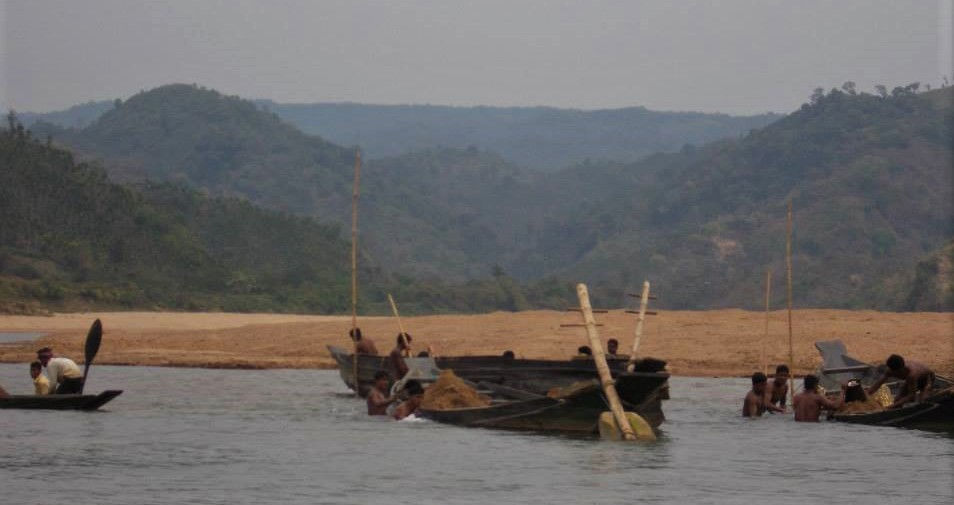Lalakal: Tea Plantation
- Matthew P G

- Oct 4, 2022
- 3 min read
Updated: Mar 17, 2023




March 2014
A strange legacy
Tea is from China and the Chinese had a stranglehold on the world market for centuries. The British found that the hills of South Asia were conducive to its planting, and suddenly British India was filled with tea plantations to serve the unquenchable thirst of their citizens back home for that hot, sweetened energy drink. As a side effect, most citizens of the Sub-continent also became tea addicts which further enlarged the market and the need for tea. British India became independent and later Bangladesh became independent first from India then Pakistan. What was left was an odd legacy of tea plantations, foreign workers, and porous borders.
I was on a trip to Sylhet with AH, my Bangladesh bestie, and we stayed a few nights along the Shari River [see: Shari River sand miners] right up by the Indian border. The setting was gorgeous, just where the mountains rose out of the flat plains of Bangladesh. With the partition of British India after independence, some of the tea plantations literally had an international border drawn inside them overnight. To make matters even more confusing, into a predominantly Muslim Bengali region, the British had "imported" Hindu plantation labor from other parts of India. Now "trapped" in an independent Bangladesh were non-Bengali, non-Muslim tea plantation workers. Lalakal was one such place. AND to make the history even more ridiculous - the border along the tea plantation allowed for workers from India and Bangladesh to tend the fields on both sides of the frontier!
AH and I took a small boat across the river to the Lalakal Tea Plantation loading dock (most of the tea was taken downstream by boat). We got a guide and we walked around the estate. Perhaps to assuage British guilt about so mercilessly exploiting people, they never used the word "plantation" - instead these were "tea gardens". How hard could anyone's life be who lived and worked in a tea garden? It was no doubt filled with ponds, ducks, and little pagodas. In actuality, life in a tea garden was probably one of the worst existences a person could have.
We climbed up through the hills and saw the relics of the British Tea Plantation era including the manager's old bungalow. The place had a stunning view, but compared to similar places I had seen in India and Sri Lanka, the overseer of Lalakal in British times must have been being punished for some tea-related transgression. The bungalow was obviously lightyears better than the housing of the workers (an example pictured above), but it really wasn't colonial splendor whatsoever. I never would have wanted to be the boss of the Lalakal Tea Plantation as compared to being one of the crazy tea barons of Nuwara Eliya, Sri Lanka who lived splendid lifestyles on cloud-draped mountaintops. We then passed by the shacks and shanties of the workers and it was disheartening - they would have loved to live in the manager's bungalow most certainly. Due to their odd, semi-stateless existence, most of their children were born into poverty and just continued to work in the plantations for the proverbial salary of "less than a dollar a day". It almost made me never want to drink tea again.
We walked upward through the plantation and then stopped - the guide pointed to the pathway and said "that's India". As with most borders I found it so arbitrary and ridiculous [see: Bangladesh-India border, Jaflong]. We were getting tired and slowly made our way back to the riverside where our hotel boat waited to whisk us off to the luxurious safety of our room overlooking the hills of India and the mixed up Lalakal Tea Plantation that crisscrossed the border.
As a footnote to all of this: I ended up teaching at Asian University for Women in Chittagong, Bangladesh whose mission was to reach out to young women in marginalized communities. One of those communities was tea garden workers. At least now when I look at the photo of the hard-working "tea garden" workers and think how hard their lives had been, I could feel I made one small contribution to improving things.


Comments